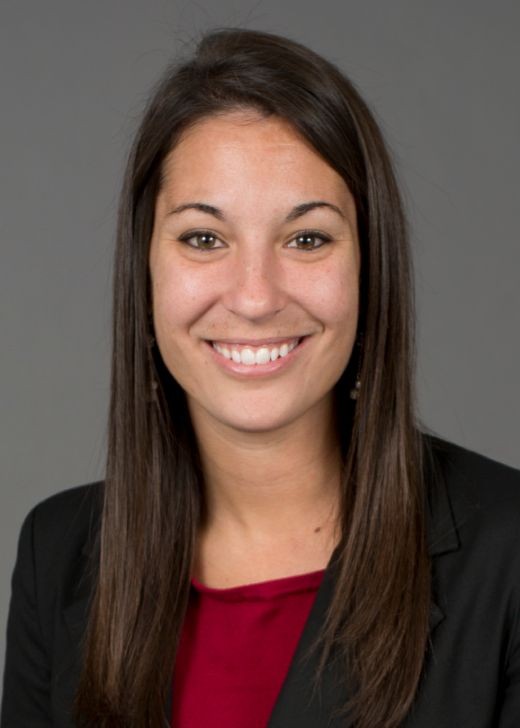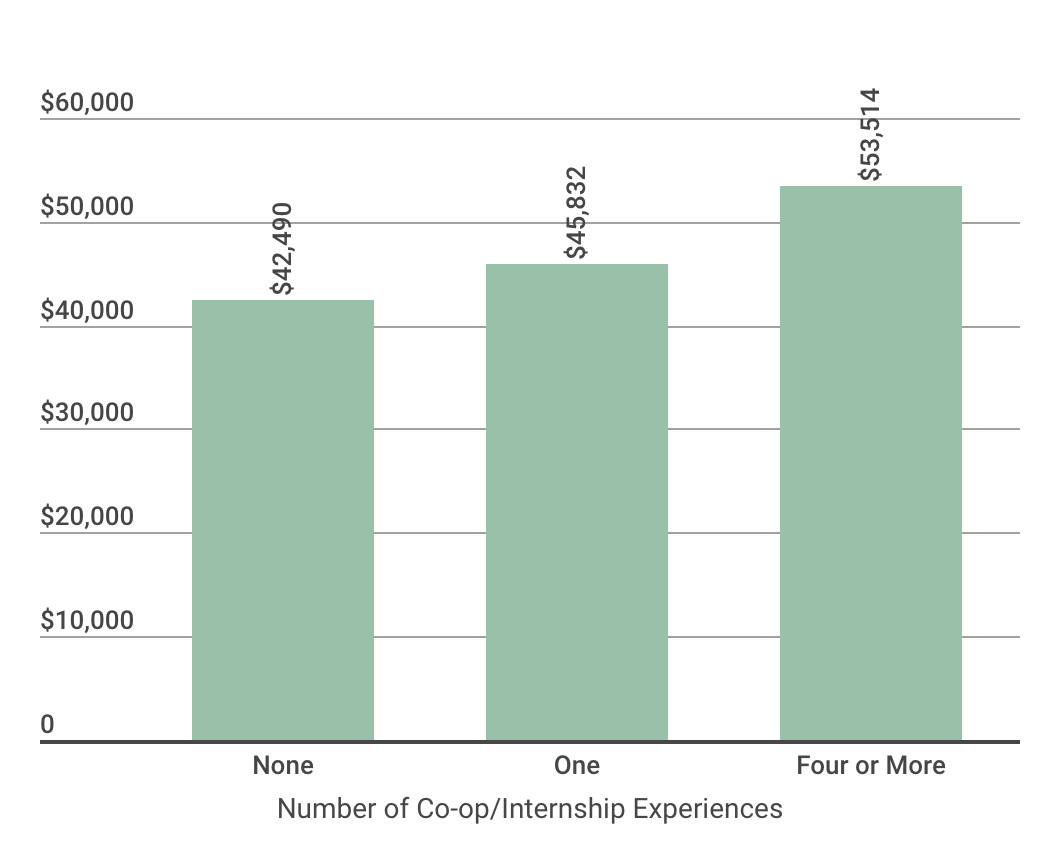Emily Bleuher co-oped with the Nielsen Company while pursuing her marketing degree at the University of Cincinnati.
The recent graduate started a full-time job with Nielsen on Jan. 22.

Emily Bleuher co-oped with the Nielsen Company while pursuing her marketing degree at the University of Cincinnati.
The recent graduate started a full-time job with Nielsen on Jan. 22.
Lindner College of Business students with co-op or internship experience more likely to find jobs, earn more after graduating
513-556-5279
Photos by Joseph Fuqua II/UC Creative Services
Jan. 26, 2018
You can’t get experience without a job, but you can’t get the job without experience. That’s the tough reality college graduates often face when looking for their first full-time job.
Data collected from the 2016-17 graduating class of the University of Cincinnati Carl H. Lindner College of Business provide new evidence of the importance of professional experience. The numbers, collected by Lindner Career Services (LCS), show that 81 percent of graduates with at least one co-op or internship experience found work within three months of graduation, compared to 62 percent of graduates that didn’t co-op or intern during their undergraduate work. “Even at one experience, this data is showing that it makes a huge impact,” says LCS Associate Director Angie Lucas.

Angie Lucas
Students with four or more professional experiences were not only more likely to find work within three months of graduation (89 percent), they also earn more. Such students had an average starting salary of $53,514, compared to $42,490 earned by students with none. “If they’ve done four or more co-ops, they may be more likely to negotiate salary,” Lucas explains. “They may have done it for previous co-ops, or they may just be more confident with the experience that they have and be more likely to ask for more. They’re also applying for jobs that require more experience.”

The starting salary for recent graduates tends to be higher for students who had at least one co-op or internship experience, and much higher for those who had four or more such experiences.
Another possibility is that students are forming relationships with their future employers through their co-op experiences. Although Lucas says that’s not something LCS has dug into yet, it’s certainly the case for Emily Bleuher, who graduated from UC in winter 2017 from the college’s marketing program.
Bleuher first crossed paths with her dream employer, the Nielsen Company, at the UC Fall Career Fair during her sophomore year. She didn’t get the gig, but she found a mentor willing to give her advice and answer her questions about the industry. She interned at a rival market research firm in her native Chicago during the summer between her sophomore and junior years, but Nielsen remained her goal. “That whole period of time, I stayed in touch with my interviewer from Nielsen and just stayed on good terms with him,” Bleuher says. “I applied again last fall and received the internship.”
Birthplace of Co-op
When the University of Cincinnati Board of Trustees allowed College of Engineering Dean Herman Schneider to move forward with his plan for cooperative education in 1906, they made it clear that in doing so, they would not be held responsible when it inevitably failed. Their skepticism turned out to be unfounded. UC engineering students were the first to benefit from what turned out to be a wildly successful concept, and other colleges and universities around the world soon duplicated the model created at UC.
Despite a relationship that goes back more than a year, Bleuher’s relationship with the Nielsen Company is just getting started; they extended her a full-time job offer well before she graduated from UC. Her first day on Nielsen’s client services team was Jan. 22, and she’ll be earning an annual salary in the mid-$50,000 range.
Bleuher’s networking skills helped her land the job, but she also credits LCS for helping her prepare for life after college. That’s where she got help with preparing her resume and polishing her interview skills. “I think it’s a great service that everyone should utilize,” she says.
The UC Lindner College of Business has placed an increased emphasis on getting students prepared for the workplace. Lindner Career Services now has nine full-time staff members that work directly with students and employers, and the college now requires all freshmen and transfer students to take a class called Career Success Strategies, which is taught by LCS staff.
“The transformation for our student has been phenomenal," Lindner Dean David Szymanski says. "Not only is their academic experience enriched, but their greater professional preparedness places them on a new trajectory for success.”

The Carl H. Lindner College of Business focuses on providing students with a multitude of real-world business experiences. The Lindner experience is customized for each student to help them discover their passions, set goals and pursue their ideal careers. Click here to learn more.